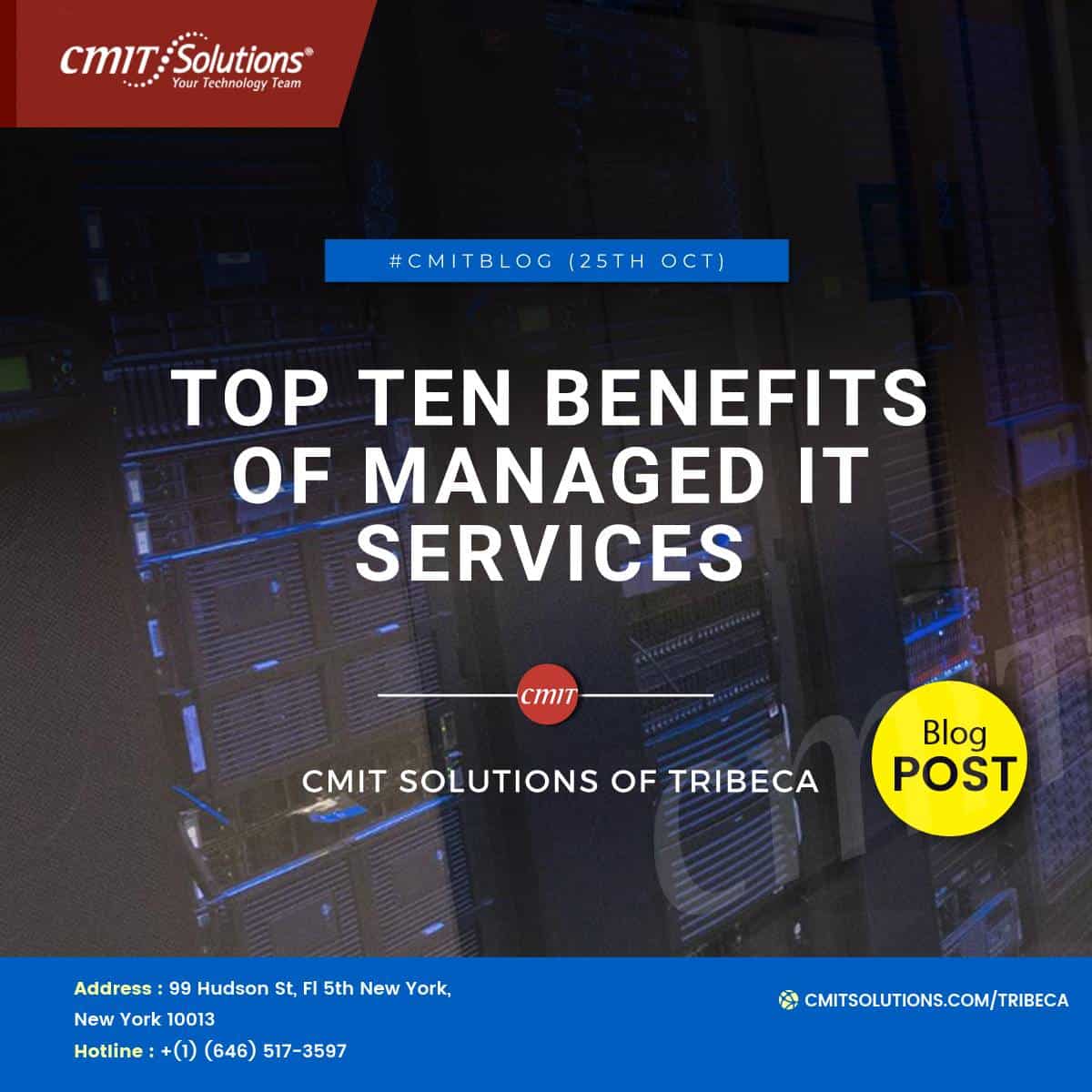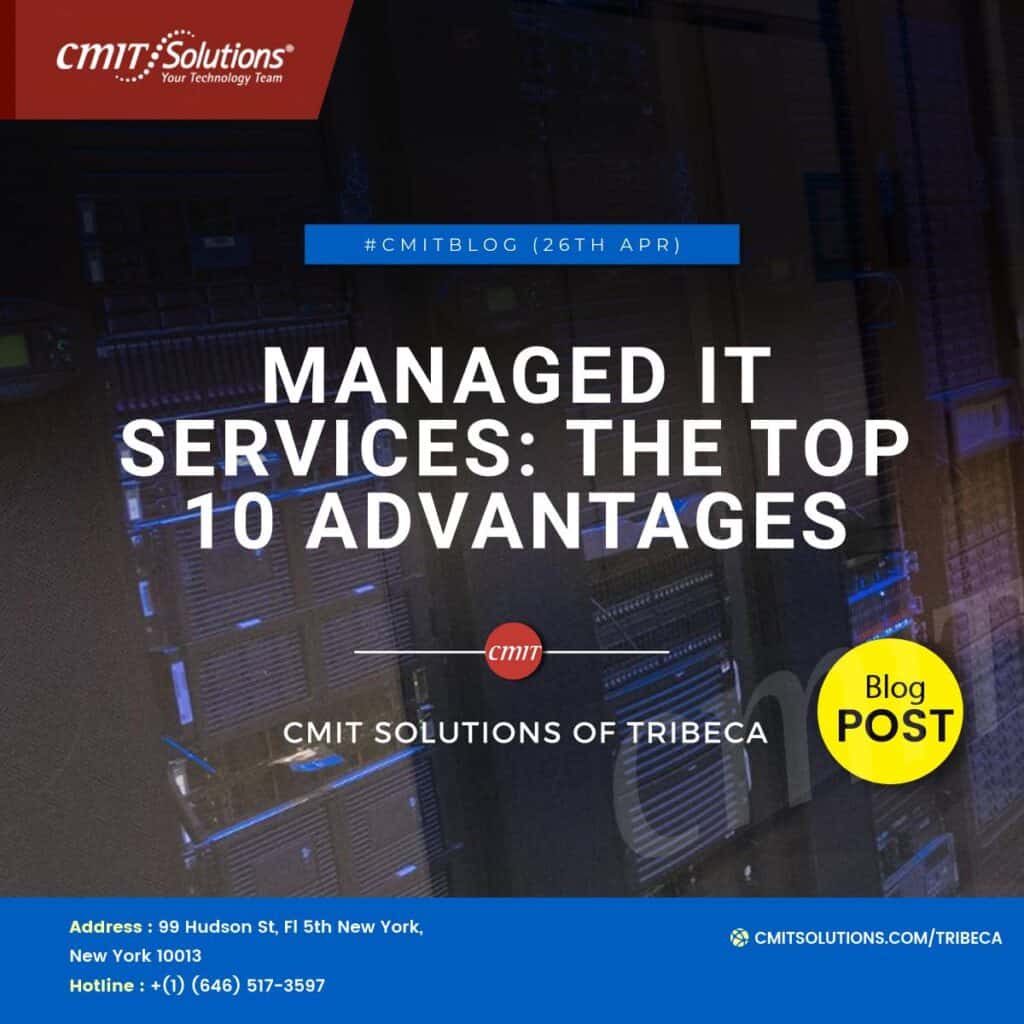Managed services may assist you in concentrating on what is most important, whether you are an accomplished IT specialist or a company leader. The devotion, industry knowledge, and skill of a whole IT department focused on delivering your core business are among the benefits of managed IT. The benefits of managed IT services allow you to focus on increasing your company’s core skills, while a managed services provider may assist you with the day-to-day duties of more time-consuming and complicated initiatives, such as:
- Solutions for data centers
- Computing in the cloud
- Planning for Disaster Recovery
- Computer systems, cyber security, and asset management
- Customer service
Finally, suppliers will improve your company’s productivity and competitiveness by offering managed services advantages.
Benefits and Advantages of Managed IT Services
Using a reputable service provides you with extra benefits such as:
1. Spending that is predictable and scalable (OPEX)
Investing in information technology systems and infrastructure can be costly. When you invest in IT requirements upfront, anticipating operational expenditures as your organization expands can be difficult. These expenses are aggregated into a fixed set of OPEX costs when IT services are outsourced. Because managed service providers often charge fixed monthly prices, problems like hardware breakdowns, maintenance, and repairs are incorporated into your operating budget. They will not break the bank if they occur unexpectedly.
2. Reduce sunk and operational costs
Operating an in-house staff entails major sunk expenses such as monthly pay, benefits, insurance, and office maintenance. Furthermore, educating new employees on your existing systems and procedures takes time and money. Outsourcing your IT endeavors to specialists allows you to avoid the enormous capital expenses associated with managing systems in-house, which bring little to no value to your organization. Managed IT services assist in minimizing your IT costs in addition to reducing your capital expenditures. Managed services, for example, can help you save money on
- consulting.
- Licensing
- Training
- Repairs for emergencies
When you sign the managed service level agreement, you also get lower labor charges and save time.
3. Improved Response Time
Employees cannot be slowed down by downtime or technological challenges in today’s corporate world. Having 24/7/365 assistance is essential, especially during peak periods, to guarantee that your staff is constantly productive. With a support services provider on your side, your users may get help at any time of day or night, on weekends or holidays.
4. Knowledge and Experience
The most crucial benefit of managed IT services is the ability to hire people with industry-specific knowledge, abilities, certifications, and training. A managed services provider provides access to top-tier IT administrators with specialized skill sets, eliminating the need to discover and hire them on your own. When you work with an IT support firm, your organization has access to the most recent technology on the market, and the technology can be integrated swiftly and smoothly.
5. Proactive monitoring and problem resolution
When you engage with managed services, you get proactive solutions and access to specialists and their talents. Monitoring and controlling your IT allows you to discover errors before they become major concerns.
Managed IT responds quickly and maintains company continuity due to minimizing downtime.
6. Support for Data Compliance
Many businesses are forced to meet stringent IT integration standards and laws. Examples include the Family Educational Rights and Privacy Act, Sarbanes-Oxley Act (SOX), and Health Insurance Portability and Accountability Act (HIPAA).
These standards include specific laws for privacy, financial services, retail outlets, and healthcare reporting and security, all of which managed providers are well-versed in.
7. Cybersecurity Assistance
Outsourcing to a managed services provider who is experienced with PCI compliance reduces the risks associated with credit card use, client data, and any other sensitive information leaks.
Managed service providers use security techniques that guarantee your company meets security standards.
8. Vendors have a single point of contact.
Many firms struggle to keep a list of vendors for all IT-related equipment. Fortunately, managed solutions providers deal with hardware and software manufacturers, so you never have to participate in complex technical discussions. You may also receive the lowest price for equipment on the market.
9. Shorten the time to market
Cloud computing adds high-speed resources to the table, which may remove IT inefficiencies. This results in a shorter time to market and higher production.
10. Minimize Risk
Every business venture involves some level of Risk. You must cope with the following issues:
- financial circumstances
- Changing technology, government regulation, and shifting market conditions are all factors to consider.
- Outsourcing your IT helps to reduce common company risks.
You will have professionals on hand who understand the intricacies of the sector as well as security and compliance problems.
Future Road mapping Assistance
Most firms believe that it is preferable to start small and expand gradually. When you use a cloud-managed service, you can quickly scale up or down in response to demand. Increased bandwidth may be required if client demand increases, such as during the holiday season. This situation is manageable with the assistance of a managed service provider.
Overall, managed services make expanding, upgrading, and implementing new technology more manageable.








